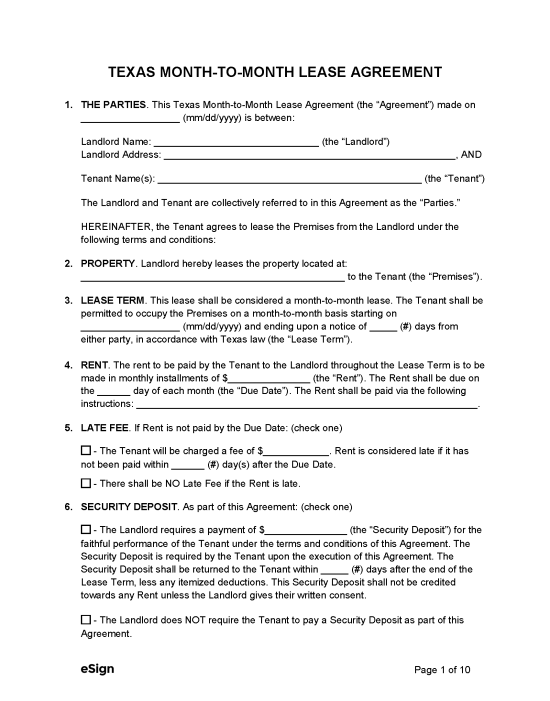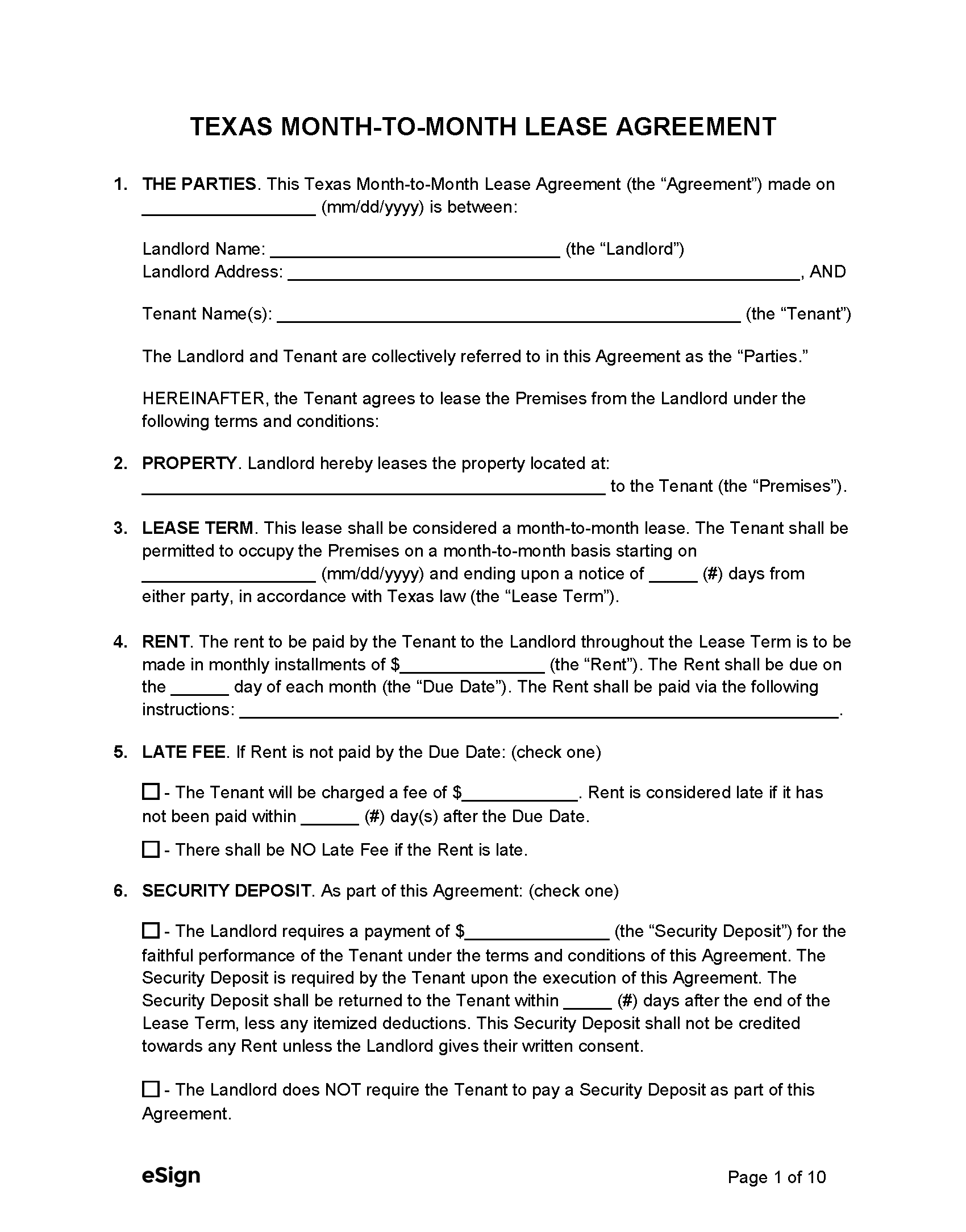Rental Application – Gathers a tenant’s background information and secures their consent to a background check.
Month-to-Month Lease Laws
- Termination Notice – A one-month notice must be given before ending a lease.[1]
- Rent Increase Notice – No statute; notice of at least one term is required.
Required Disclosures (7)
- 100-Year Flood Plain (PDF) – Landlords must disclose if, to their knowledge, a dwelling is in a 100-year floodplain and if it has been flooded in the last five years.[2]
- Lead-Based Paint Disclosure (PDF) – This disclosure is required when leasing a dwelling built earlier than 1978, as lead-based paint may have been used.[3]
- Ownership and Management – Tenants must be provided the name and address of the property title holder and, if applicable, the property management company.[4]
- Right to Interrupt Utilities – If the landlord charges for electricity and wants to be able to shut it off for nonpayment, they will need to include a clause in the lease that allows for this.[5]
- Statutory Rights – Tenants may break a lease early due to family violence or military deployment or transfers without being liable for unpaid rent if the lease does not contain specific statutory language.[6]
- Texas Parking Rules Addendum (PDF) – Tenants of a multiunit complex must be informed of the building’s parking policies.[7]
- Tenant’s Remedies – A lease must inform the tenant that they may take action to remedy repairs that aren’t resolved by the landlord within a reasonable time (usually seven days).[8]

